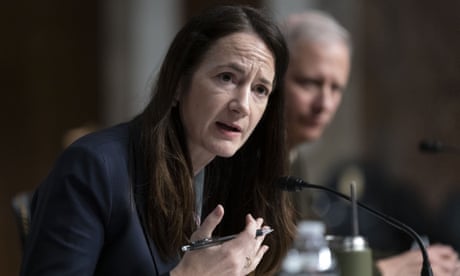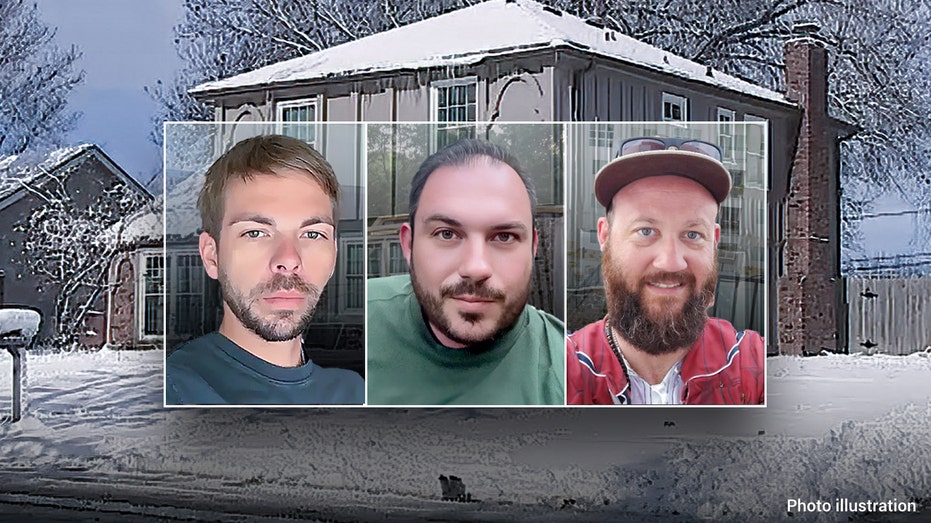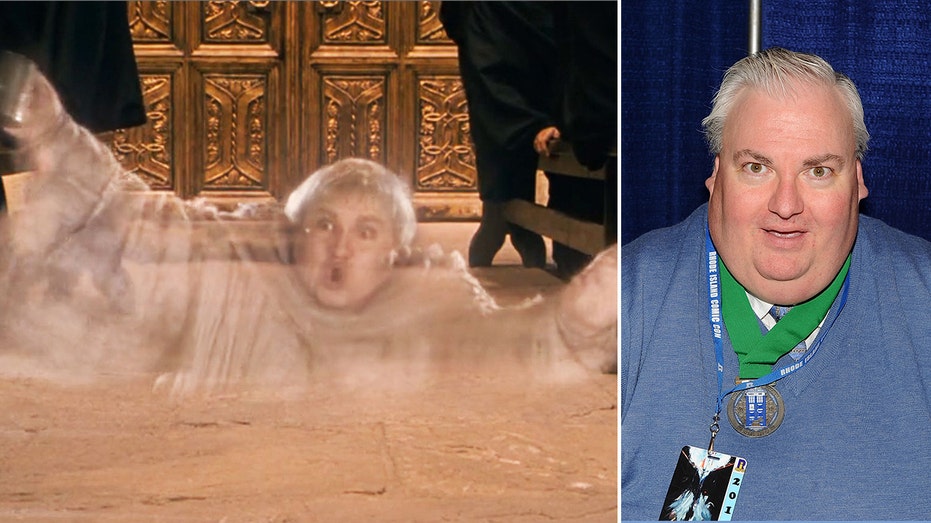- by foxnews
- 11 Mar 2025
Putin could use nuclear weapon if he felt war being lost - US intelligence chief
Putin could use nuclear weapon if he felt war being lost - US intelligence chief
- by theguardian
- 11 May 2022
- in news

Vladimir Putin could view the prospect of defeat in Ukraine as an existential threat to his regime, potentially triggering his resort to using a nuclear weapon, the top US intelligence official has warned.
The warning on Tuesday came in an assessment from intelligence chiefs briefing the Senate on worldwide threats. The prediction for Ukraine was a long, gruelling war of attrition, which could lead to increasingly volatile acts of escalation from Putin, including full mobilisation, the imposition of martial law, and - if the Russian leader felt the war was going against him, endangering his position in Moscow - even the use of a nuclear warhead.
The grim forecast came on a day of continued fighting in the east and south of Ukraine, and Russian missile attacks on the port of Odesa, with the UN conceding that the civilian death toll from the war will probably be far higher than the current official estimate of 3,381.
The director of national intelligence, Avril Haines, told the Senate armed services committee that Putin would continue to brandish Russia's nuclear arsenal in an attempt to deter the US and its allies from further support for Ukraine. The shift of focus to the east and the south are most likely a temporary tactic rather than a permanent scaling back of war aims, she said.
The Russian leader would not use a nuclear weapon until he saw an existential threat to Russia or his regime, Haines argued. But she added that he could view the prospect of defeat in Ukraine as constituting such a threat.
"We do think that [Putin's perception of an existential threat] could be the case in the event that he perceives that he is losing the war in Ukraine, and that Nato in effect is either intervening or about to intervene in that context, which would obviously contribute to a perception that he is about to lose the war in Ukraine," Haines told the committee hearing.
She added that the world would probably have some warning that nuclear use was imminent.
"There are a lot of things that he would do in the context of escalation before he would get to nuclear weapons, and also that he would be likely to engage in some signaling beyond what he's done thus far before doing so," Haines said.
That signaling could include a further large-scale nuclear exercise involving the substantial dispersal of mobile intercontinental missiles, heavy bombers and strategic submarines.
The assessment the US intelligence chiefs laid out for the senators suggested that Ukraine was faced with the prospect of a war of attrition. They said Putin intended to conquer the Luhansk and Donetsk regions plus a buffer zone around them, to secure a land bridge to Crimea. He wanted to hold Kherson, north of Crimea, to secure the water supply to the peninsula.
However, his ambitions did not stop there. Haines said there were "indications" that Putin wants to extend the land bridge as far as Transnistria, the Moscow-occupied region of Moldova, thereby controlling all of Ukraine's Black Sea coast. Haines said, however, that Putin would face an uphill task, and that the extension of the land bridge to Transnistria, including the capture of Odesa, would not be possible without a full mobilisation. She added that the capture of the Donbas plus a buffer zone was unlikely in the next few weeks.
The head of the Defence Intelligence Agency, Lt Gen Scott Berrier, said that the US believed that between eight and 10 Russian generals had been killed so far in the conflict.
Like Haines, Berrier predicted a stalemate, with neither side able to achieve a breakthrough. But a decision by Putin to order a full mobilisation in Russia, ushered in by a formal declaration of war, could change the military balance.
"If they do mobilise, and they do declare war, that'll bring thousands more soldiers to the fight," Berrier said. "And even though they may not be as well trained and competent, they will still bring mass and a lot more ammunition."
Despite all the setbacks, Haines said Putin was probably convinced that Russia ultimately had more stamina than Ukraine and its backers.
"He is probably counting on the US and EU resolve to weaken as food shortages, inflation and energy prices get worse," she said.
Given Putin's conviction he could ultimately prevail, and the fact that Ukraine showed no signs of giving in, Haines said US intelligence agencies "do not see a viable negotiating path forward, at least in the short term".
Meanwhile, as the war of attrition continued, the conflict was likely to take "a more unpredictable and potentially escalatory trajectory".
"The current trend increases the likelihood that President Putin will turn to more drastic means, including imposing martial law, reorienting industrial production, or potentially escalatory military actions to free up the resources needed to achieve his objectives as the conflict drags on, or if he perceives Russia is losing in Ukraine," Haines said.
The most likely flashpoint in the coming weeks, she added, would be escalating Russian attempts to intimidate the west to stop weapons supplies into Ukraine and possible retaliation for western economic sanctions or perceived threats to Putin's regime at home.
- by foxnews
- descember 09, 2016
High-end vacation resort bans children to achieve 'tranquil environment'
The Alila Marea Beach Resort, located in Encinitas, California, has announced that it's no longer accepting kids and is transitioning to an adults-only vacation spot.
read more


